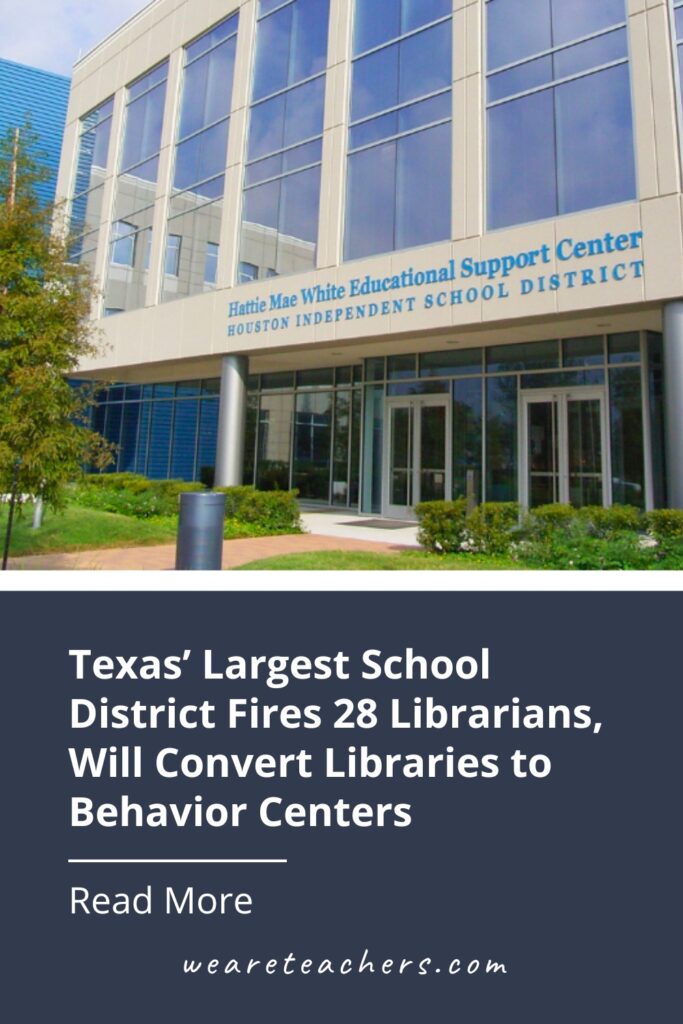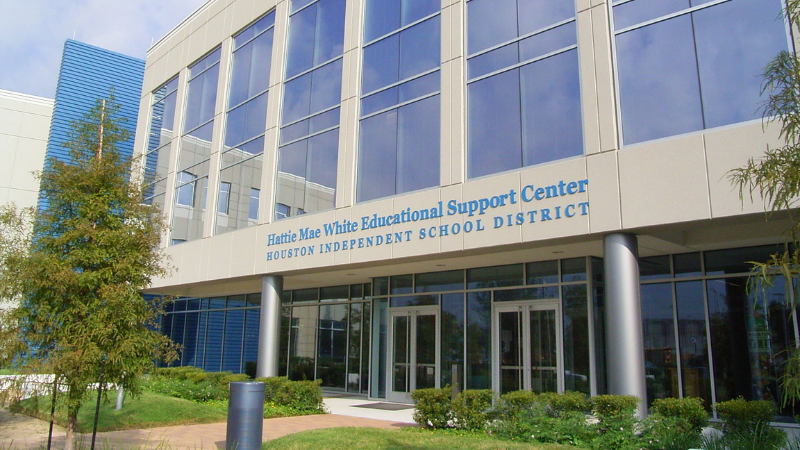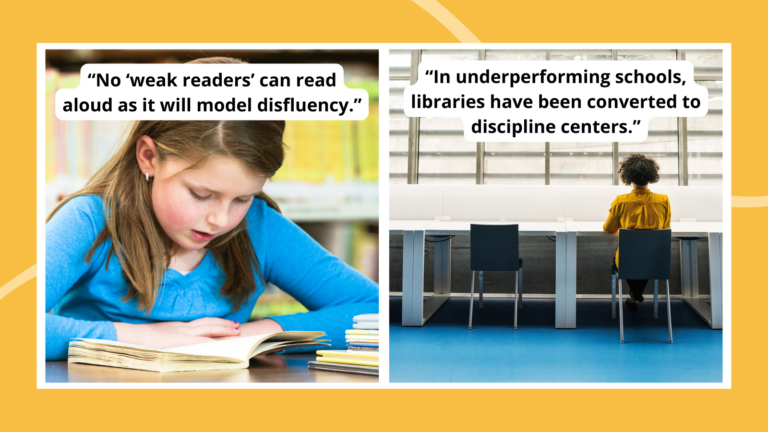In a bold move, Houston Independent School District (HISD) Superintendent Mike Miles eliminated 28 librarian positions to convert the libraries into behavioral centers. This move, a component of Miles’ New Education System reform and only the latest in a series of controversial decisions, has ignited a firestorm of opposition from teachers, parents, and education advocates. At WeAreTeachers, we find ourselves grappling with two key concerns of this issue.
Critics are right to point out that this is an inequitable move.
At the heart of the outrage lies the stark disparity between schools with ample resources and those without. The 28 schools losing their librarians are predominantly situated in higher-poverty, minority-majority areas.
The students in these underserved communities, already facing significant challenges, will now lose access to invaluable librarian support, while students in more privileged schools will continue to have access to these crucial resources.
Superintendent Miles claims HISD students are falling behind in reading levels, yet removing librarians from the schools that need them most seems counterintuitive. Studies consistently show that students who have the opportunity to read for pleasure and make their own reading choices tend to perform better academically.
The decision carries with it a message rife with poverty bias to these school communities: Kids like yours won’t need books; they need punishment. Yes, student behavior concerns have increased post-pandemic, but we know this is reported from teachers across all kinds of schools, not just schools in low-income areas. Why wouldn’t Miles also close libraries in wealthier schools?
We know why.
Schools can revamp a discipline management system and keep their libraries open. It’s not an either/or situation.
Who are we really punishing?
The superintendent might consider removing the librarian positions from these 28 schools to address behavioral issues. But again, we know punishing students to get them to behave how we want them to doesn’t work in the long run.
Promoting a culture of understanding, support, and guidance is far more effective in helping students develop socially and academically. And what better place does this happen than with our librarians?
In this perplexing decision from HISD’s superintendent, we draw hope from the resilience of educators and students who passionately advocate for the preservation of libraries. We aren’t sure what the future of libraries is in HISD, but we join advocates who hope their voices will remain louder than those trying to squash libraries.
Ultimately, we believe that progress comes from supporting and empowering students and teachers, and not just the ones in rich schools.
What are your thoughts on this decision? Let us know in the comments.
Plus, for more articles like this, be sure to subscribe to our newsletters.


